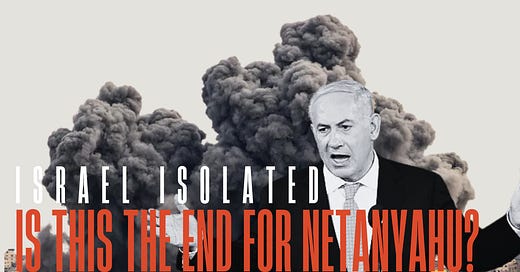This week, I had the opportunity to sit down with Michael Koplow, Chief Policy Officer of the Israel Policy Forum, along with 10 MidAtlantic listeners on Zoom. Koplow's understanding of Israel is shaped not only by his role at the forum but also by the substantial time he spends in the country annually. His perspective on the state is emblematic of many Jews living outside Israel: he is a staunch supporter of the nation, deeply empathetic towards its fears and anxieties, yet critically aware of the criticisms facing both Prime Minister Benjamin Netanyahu and the state at large.
I entered the conversation wanting a fight. The ongoing crisis in Gaza has only deepened my anger, as the imminent starvation of 1.5 million Gazans has highlighted Israel's brutal policy towards the Palestinians. Michael was not an apologist for Israel; what he did do was shed light on the politics and security concerns that define Israel's current predicament in a sober fashion.
The United Nations Security Council's recent resolution demanding a ceasefire in Gaza for the remainder of Ramadan, and the U.S.'s notable decision not to veto this resolution, marks, I think, a pivotal moment in Israel-U.S. relations. Koplow thought this was not as significant a deal between these long-standing allies. Though we did agree that it raises questions about Netanyahu's leadership and Israel's standing on the global stage.
Koplow points out that Netanyahu's response to these challenges is a mixture of political strategy and survival tactics. By positioning himself as Israel's lone defender against a world perceived to be hostile, Netanyahu aims to solidify his power base and the extreme factions in the coalition government. Yet, this approach is fraught with risks, as it not only alienates international allies but also deepens domestic divisions.
The conversation also touches on the broader implications of the crisis for Israeli society and the geopolitical landscape. Koplow's commentary illuminates the nuanced positions within Israel regarding a potential operation in Rafah and the unanimous Israeli consensus on the threat posed by Hamas, differing significantly from the international debate surrounding the crisis.
One of the most compelling aspects of Koplow's analysis is his distinction between legitimate criticism of Israeli policy and accusations that border on antisemitism. He argues for the importance of constructive criticism that acknowledges Israel's right to exist and defend itself, while advocating for policies that lead towards a sustainable peace, which means an accommodation with the Palestinians.
Koplow took time to explain Israeli politicians Smotrich, Ben-Gvir, Galant, and Gantz and their policy positions regarding Gaza and what this means for the survival of Netanyahu. In essence, Koplow's insights offer a window into the complex realities of Israeli politics, the moral and security issues, and the potential pathways out of the current war in Gaza.
As the crisis in Gaza continues to unfold, Koplow's left-leaning view is an essential contribution to the broader conversation about Israel's future—will it become a pariah state in the eyes of the global community? The question is, after this current conflict, how will it pursue peace, with the only viable option for peace being a two-state solution. But first, it should feed the Palestinians while sitting down with regional players and plotting the rebuilding of Gaza, that will ultimately bring it the peace it craves.















Share this post